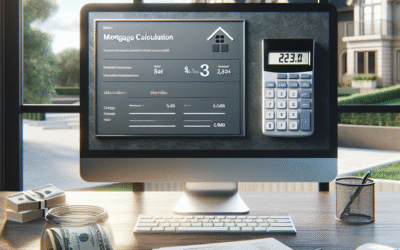debt consolidation loans. — This guide covers key strategies and practical steps for debt consolidation loans..
Debt can often feel overwhelming, especially when you have multiple accounts to manage. One solution many people consider is debt consolidation loans. These loans can help simplify your financial life and potentially save you money in the long run. In this article, we will explore everything you need to know about debt consolidation loans, including what they are, their benefits, types, how to qualify, and much more.
What Are Debt Consolidation Loans?
Debt consolidation loans are financial products that allow you to combine multiple debts into a single loan. Instead of juggling various payments to different creditors, you take out one loan and use it to pay off those debts. This can include credit card debt, personal loans, medical bills, or other types of unsecured debt.
The main goal of debt consolidation loans is to simplify your financial management and reduce your overall interest payments. By consolidating, you can often secure a lower interest rate than the average rate of your current debts, making it easier to pay off what you owe.
Benefits of Debt Consolidation Loans
Choosing to consolidate your debts comes with several advantages:
Lower Interest Rates
One of the most significant benefits of debt consolidation loans is the potential for lower interest rates. If you have high-interest credit cards, consolidating your debt can help you secure a loan with a lower rate. This means more of your payment goes toward paying down the principal rather than just interest.
Simplified Payments
Managing multiple payments can be stressful. With debt consolidation, you only have to remember one payment due date. This simplifies your finances and can help prevent missed payments, which could lead to additional fees and a negative impact on your credit score.
Types of Debt Consolidation Loans
There are two primary types of debt consolidation loans: secured and unsecured. Understanding the differences can help you make an informed decision.
Secured Debt Consolidation Loans
Secured loans require collateral, such as your home or car, which the lender can claim if you fail to repay the loan. Because of this backing, secured loans often come with lower interest rates. However, they also carry the risk of losing your asset if you cannot make the payments.
Unsecured Debt Consolidation Loans
Unsecured loans do not require collateral. They are based on your creditworthiness alone. While these loans can be more accessible for those without valuable assets, they typically come with higher interest rates than secured loans. If you have good credit, you may still qualify for a favorable rate.
How to Qualify for Debt Consolidation Loans
Qualifying for a debt consolidation loan can vary depending on the lender, but there are some common requirements:
- Credit Score: Most lenders will check your credit score. A higher score can help you qualify for better rates.
- Debt-to-Income Ratio: Lenders may look at your monthly debt payments compared to your income. A lower ratio is more favorable.
- Employment History: A stable job can demonstrate your ability to repay the loan.
- Financial History: Lenders will review your past borrowing behavior, including any missed payments or bankruptcies.
Before applying, it’s wise to check your credit report and address any discrepancies that may affect your score.
Debt Consolidation Loans vs. Debt Settlement
Understanding the difference between debt consolidation loans and debt settlement is crucial for making the right financial decisions.
- Debt Consolidation Loans: These involve taking out a loan to pay off existing debts. You’ll still be responsible for repaying the new loan, but it simplifies your payments and may lower your interest rates.
- Debt Settlement: This process involves negotiating with creditors to pay less than what you owe. While this can reduce the overall debt, it may negatively impact your credit score and can have tax implications since forgiven debt may be considered taxable income.
Common Misconceptions About Debt Consolidation Loans
There are several misconceptions surrounding debt consolidation loans that can lead to confusion:
- Myth 1: Debt Consolidation is a Quick Fix
Many believe that taking out a consolidation loan will solve their financial problems instantly. While it simplifies payments, it does not address the underlying issues leading to debt.
- Myth 2: All Consolidation Loans are Bad
Some people think that any consolidation loan is a bad idea. However, if done correctly, it can be a valuable tool for managing debt effectively.
- Myth 3: You’ll Never Be in Debt Again
Consolidating debt does not change spending habits. If you do not adjust your financial behavior, you could end up accumulating more debt, negating the benefits of consolidation.
Tips for Choosing the Right Debt Consolidation Loan
When considering a debt consolidation loan, keep these tips in mind:
- Compare Lenders: Look for different lenders to find the best interest rates and terms. Online tools can help you compare offers easily.
- Read the Fine Print: Understand all fees associated with the loan, including origination fees and prepayment penalties.
- Check Your Credit Score: Knowing your score can help you negotiate better terms.
- Consider Loan Terms: Look for a loan term that fits your budget. Longer terms may lower your monthly payments but can increase the total interest paid over time.
- Seek Professional Advice: If you’re unsure, consider speaking with a financial advisor or a credit counseling service.
FAQs
- What are debt consolidation loans?
Debt consolidation loans allow you to combine multiple debts into one loan, simplifying payments and potentially lowering interest rates.
- How do debt consolidation loans work?
You take out a loan to pay off existing debts, leaving you with a single monthly payment to the new lender.
- What are the benefits of debt consolidation loans?
Benefits include lower interest rates, simplified payments, and potentially improved credit scores over time.
- Can I qualify for debt consolidation loans with bad credit?
It may be more challenging, but some lenders offer options for those with less-than-perfect credit, albeit at higher interest rates.
- Are secured or unsecured debt consolidation loans better?
It depends on your financial situation. Secured loans often have lower rates but risk losing collateral, while unsecured loans don’t require collateral but may have higher rates.
- Is debt consolidation the same as debt settlement?
No, debt consolidation combines debts into one loan, while debt settlement negotiates to pay less than what you owe.
For more information on managing debt and financial planning, check out resources from the National Foundation for Credit Counseling and Consumer Financial Protection Bureau.





0 Comments